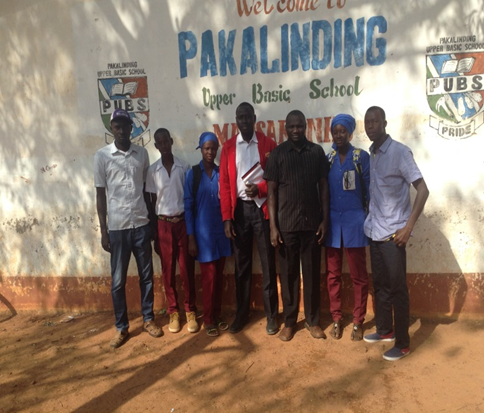UNICEF Grant Enables NSGA To Lead Project
- ACIC
- Dec 12, 2018
- 2 min read
Updated: Aug 12, 2022
UNICEF Grant Enables NSGA to Lead Project for Elimination of Female Genital Mutilation/Cutting (FGM/C) in the Gambia
The NSGA was founded in the mid-1980s by a group of Nova Scotians, and has a 33 year history of development work in The Gambia focusing on education, health, and community development. Since 1990, the NSGA has used its “signature” project (a unique, school and community-based peer health education program) in virtually every middle school, high school, and village in the country.
That program will now be tapped to try and help bring an end to the centuries-old and still-pervasive practice of female genital mutilation/cutting (FGM/C) in The Gambia. The 2013 Demographic and Health Survey (DHS) indicated that the prevalence of FGM/C among women aged 15-49 in the Gambia was at 75%.
The potential negative physical effects of FGM/C are severe. Early complications include urinary retention, infection, and bleeding, while late complications include long-term urinary issues, scarring, pain, fertility/sexuality difficulties, and infection. The psychological effects can be as debilitating as the physical complications, with PTSD, depression, anxiety, and somatization reported.

In December 2015, after years of advocacy against the practice, the Gambian Government amended legislation to finally prohibit it in the country. However the practice is both widespread and deeply ingrained in The Gambia and neighboring countries, and is expected to take years to eliminate entirely.
UNICEF has engaged the NSGA to actively tackle the issue by financing this new project. The NSGA-led pilot will last six months and then be assessed for effectiveness and potential expansion. The total grant is nearly 6.5 million Gambian Dalasi ($170,000 Canadian), and along with its direct role the NSGA will administer five other Gambian not-for-profit organizations.

NSGA’s special mandate will include using its professional drama troupes to perform educational plays in selected local villages and communities, followed-up by discussions in local languages; using the drama troupes to identify and train existing community groups in the rural areas to conduct their own dramatic performances and information sessions; leveraging the Peer Health Education strategy to educate students in 16 secondary schools across the country, who will in turn educate thousands of their fellow students.
For more information, please visit www.novascotiagambia.ca or contact National Program Manager Abdou Kanteh (abdoukanteh@novascotiagambia.ca), or the Board of Directors (1574 Argyle Street, Suite 17, Halifax, Nova Scotia, B3J 2B3. Phone: (902) 423-1360. Fax: (902) 429-9004. Email: info@novascotiagambia.ca).






